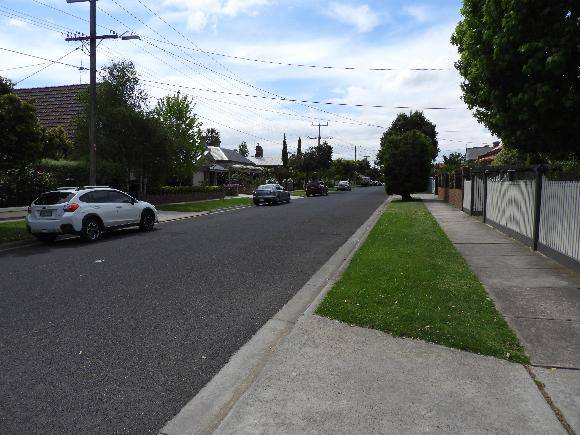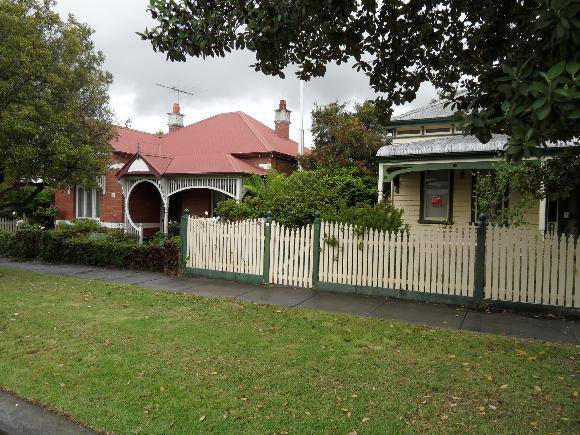| Back to search results » | Back to search page » |
|
MACKAY STREET
Other NamePrecinct Location3-51 & 4-50 MACKAY STREET, ESSENDON, MOONEE VALLEY CITY LevelIncluded in Heritage Overlay |
|
Statement of Significance
What is Significant?
The Mackay Street precinct, which comprises the houses at 3-51 and
4-50 Mackay Street, Essendon, and subdivided in c.1888-1890s and
developed c.1900-20s, is significant. The following features contribute to the significance of the precinct: . The pattern of development in the precinct which comprises a mixed
streetscape of Victorian, Federation and interwar houses, and the key
features and original detailing characteristic of their respective
styles, in many cases transitional styles. . Bluestone laneways at the rear of 3-13 and 4-48 Mackay Street. . Original or early front fence at 22 Mackay Street. The houses at 3, 9, 11, 13, 15, 19, 21, 23, 25, 27, 29, 31, 35, 37,
39, 41, 43, 45, 47, 49, 51 and 4, 8, 10, 12, 14, 16, 20, 22, 26, 30,
32, 34, 36 and 38 are Contributory. Non-original alterations and additions to the Contributory buildings
are not significant. The houses at 5, 7, 17 and 33 and 6, 18, 24, 28, 42, 44, 48 and 50
Mackay Street are Non-contributory to the precinct.
How is it significant?
The Mackay Street Precinct, Essendon, is of local historical, and
representative (architectural) significance to the City of Moonee Valley.
Why is it significant?
Historically the Mackay Street precinct illustrates what was a
typical pattern of development in Moonee Valley, when larger estates
were subdivided in the late nineteenth-century land boom, but where
most development occurred between c.1905 and the 1930s. Development
was spurred by improved transport connections and other services,
including the introduction of electric trams along Mt Alexander Road
in 1906. Mackay Street is typical of this pattern of development in
Moonee Valley, the housing stock reflective of the history of
Essendon's development. (Criterion A) The Mackay Street precinct is significant as a representative area of
late nineteenth century and early to mid-twentieth century housing in
this part of the municipality. The mixed streetscape of Victorian,
Federation and interwar era houses, which retain key features and
detailing characteristic of their respective styles, demonstrate the
key development phases. Interspersed throughout the precinct are many
dwellings that reflect the transition between the Victorian and
Federation eras through their designs, which incorporate features of
both the Italianate and Queen Anne styles. These dwellings that
combine stylistic features from different eras, add visual cohesion to
the otherwise mixed streetscape.. (Criterion D)
Group
Residential buildings (private)
Category
House





